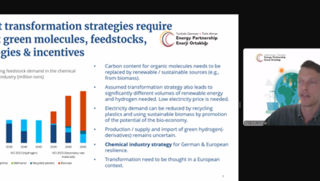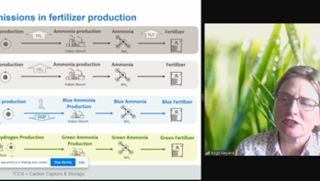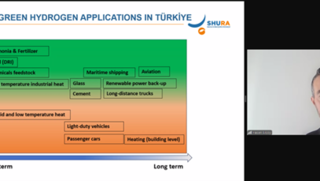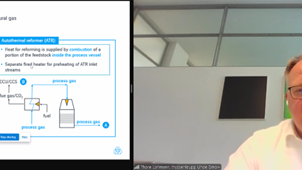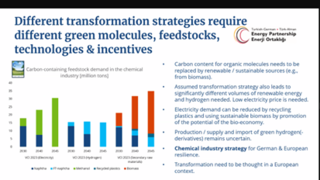Decarbonising the Ammonia and Fertiliser Industry – German and Turkish Perspectives
Decarbonising the Ammonia and Fertiliser Industry – German and Turkish Perspectives
On 14th May 2025, the Turkish-German Energy Partnership (TGEP) hosted a webinar focused on the decarbonisation of the ammonia and fertiliser industry. Bringing together policy-makers, industry leaders, and research experts from Türkiye and Germany, the webinar offered a platform to discuss opportunities, challenges, and practical approaches to transforming one of the most emission-intensive sectors of the global economy.
The ammonia and fertiliser sector plays a crucial role in both countries’ economies and is a major contributor to global greenhouse gas (GHG) emissions. At the same time, the industry holds significant potential for transformation through the deployment of green hydrogen and low-carbon technologies.
Following welcoming remarks from the German Federal Ministry for Economic Affairs and Energy (BMWE), and the Turkish Ministry of Energy and Natural Resources (MENR) the first thematic block of the webinar focused on policy and technical perspectives from both countries.
German Perspective:
An in-depth overview of the chemical sector’s decarbonisation pathways highlighted that the chemical industry, which contributes 2–3% to Germany’s GDP and employs over 350,000 people, remains heavily dependent on fossil fuels. However, multiple renewable and low-emission pathways are being pursued, including:
- Carbon capture and utilization (CCU) and storage (CCS)
- Biomass and chemical recycling
- Expansion of renewable hydrogen use
In the webinar, the importance of cross-border collaboration, supportive regulatory frameworks, and a robust hydrogen infrastructure was emphasised. The German Hydrogen Strategy aims to establish five major hydrogen import corridors as part of a trans-European hydrogen network, supporting Germany’s roughly 40 international hydrogen partnerships.
Turkish Perspective:
A presentation focused on the role of hydrogen in decarbonising the chemical sector, including ammonia production. Key insights included:
- Türkiye’s high dependency on imported ammonia and raw materials for fertilisers
- The growing potential of green hydrogen to stabilise fertiliser prices and reduce CO₂ emissions
- Priority end-use sectors such as iron, steel, and chemicals
- The need for financial incentives, infrastructure development (e.g. ports, airports), and clear technical and safety standards
- Recommendations for policy action, including carbon pricing mechanisms, export strategies, and R&D promotion
Industry perspectives:
The second block of the webinar featured industry representatives from Germany and Türkiye, who shared real-world examples of how companies plan on beginning to decarbonise ammonia and fertiliser production. Presentations highlighted the integration of N₂O abatement technologies, adoption of blue and green hydrogen as cleaner feedstocks, and the gradual transition toward green ammonia for both domestic use and export. Companies are pursuing innovative solutions including carbon capture, digital tools for sustainable farming, and plans for large-scale green ammonia projects, aiming to reduce import dependency and support decarbonisation targets. The importance of aligning these industrial strategies with policy support, infrastructure development, and international cooperation was emphasised throughout the session.
Looking Ahead:
The webinar successfully brought together over 80 stakeholders from both public and private sectors to share insights, exchange experiences, and explore opportunities for future cooperation. The discussions confirmed the critical role of ammonia in both the decarbonisation of agriculture and the advancement of the green hydrogen economy. The event also highlighted the synergies between Türkiye and Germany in industrial transformation, infrastructure development, and policy innovation.
Special Thanks
We extend our sincere gratitude to all speakers, panelists, and participants who contributed their time and expertise, including representatives from the German Federal Ministry for Economic Affairs and Climate Action (BMWK), and the Turkish Ministry of Energy and Natural Resources (MENR) as well as Shura Energy Transition Center, Yara GmbH & Co. KG – Germany, thyssenkrupp Uhde, and Tekfen Holding.
